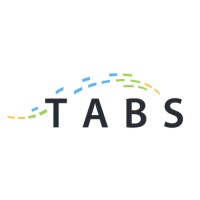Education
Written by
Please note the content is for informational purposes only and not to be relied on

1099 Filings: Easily Overlooked, but that can have Big Consequences
Businesses must prepare for 1099 filings to report payments of $600 or more to non-employees like contractors and freelancers. The 1099-NEC covers nonemployee compensation, while other versions report rents, royalties, and additional income. Filing ensures IRS compliance, transparency in bookkeeping, and fulfillment of legal obligations, with exceptions for certain corporations. The deadline to provide 1099 forms to recipients and file with the IRS is January 31, 2025. To avoid penalties and ensure accuracy, businesses should review transactions early and consult a tax professional if needed.
As the year draws to a close, it’s time to start preparing for one of the most essential tasks in your annual business and tax compliance: 1099 filings. For many small businesses, freelancers, and independent contractors, January signals the time to ensure proper reporting of payments that you have made to vendors to the IRS.
What Is a 1099 Form?
The 1099 form is an IRS tax document used to report income received outside of traditional employment. If your business pays $600 or more to a non-employee, such as a contractor, freelancer, or service provider, you’re required to issue a 1099-NEC (Nonemployee Compensation) form to both the recipient and the IRS. Similarly, 1099-MISC and other versions cover rents, royalties, and other types of income.
Why Are 1099 Filings Important?
- Tax Compliance: Accurate 1099 filings ensure the IRS can track taxable income. Failing to file or reporting incorrect amounts can result in penalties for your business and the payee.
- Transparency: Issuing a 1099 form creates a clear record of payments made to vendors, simplifying bookkeeping and ensuring transparency.
- Legal Obligation: As a payer, you are legally required to issue 1099s to eligible recipients. Neglecting this responsibility can expose your business to audits and fines.
Who Needs to File a 1099?
You need to issue a 1099 if:
- You paid an individual or unincorporated business $600 or more during the year.
- The payment was for services rendered, not goods.
- The recipient is not an employee (i.e., not paid through payroll).
Exceptions apply to payments made to corporations and certain types of entities, so it’s best to verify with a tax professional if you’re unsure.
Key Deadline
To remain compliant, note this critical deadline:
- January 31, 2025: Deadline to provide 1099 forms to recipients and file with the IRS (for most versions).
Final Tips
- Gather Information Early: Confirm W-9 forms from all contractors and vendors to ensure you have the correct Taxpayer Identification Numbers (TINs).
- Review Transactions: Go through financial records to identify all payments subject to 1099 reporting.
- Consult a Professional: If you have questions about filing requirements or need assistance, a tax expert can provide guidance.
Staying proactive with your 1099 filings helps protect your business from penalties while maintaining trust and transparency with vendors.
Please note the content is for informational purposes only and not to be relied on
